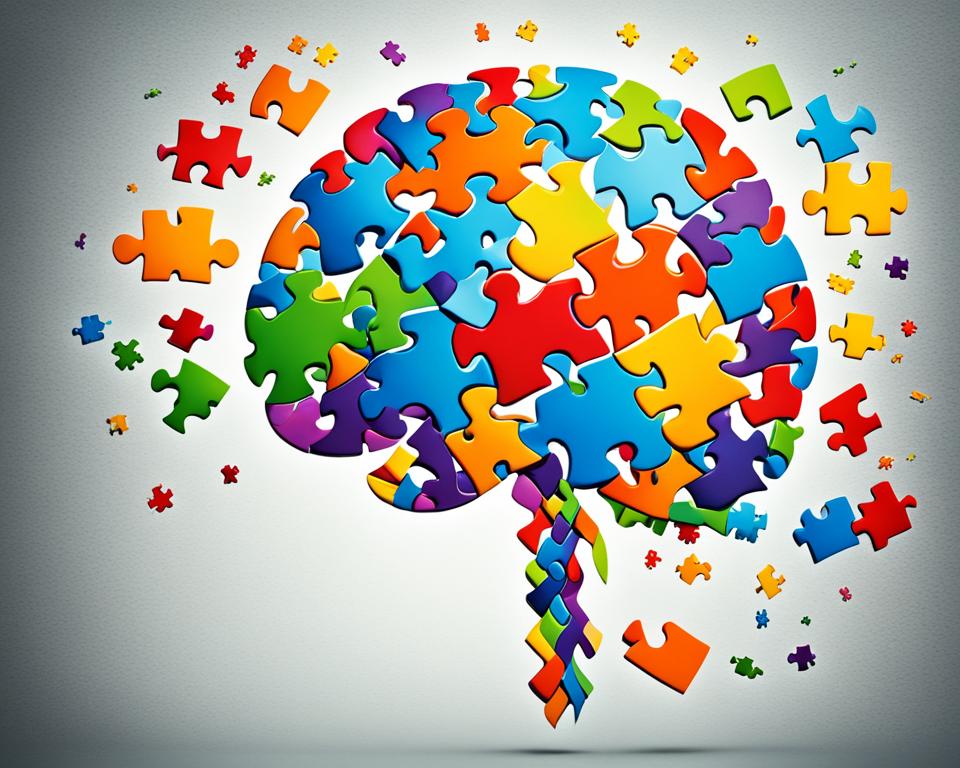It's crucial to know that students with autism and ADHD need special study strategies. Autism…

Exploring the Smarts of Autistic Individuals
The connection between autism and intelligence is a subject that inspires both curiosity and misunderstanding. Contrary to the monolithic representation often depicted in popular media, intelligence in the realm of autism is as varied as the interests and passions of those within the autistic community. It’s essential not only to recognize but also to value this neurodiversity and intelligence as a testament to the rich tapestry of human cognition.
Understanding the complexities of understanding intelligence in autism starts with acknowledging the nuances of the autistic experience. Roughly 40% of individuals on the autism spectrum are diagnosed with co-occurring intellectual disabilities, while a significant proportion displays average or even remarkably high levels of intelligence. These facts remind us that autism is not a definitive predictor of intellectual capability rather, it’s an indicator of a different cognitive journey that demands our respect and attention.
Demystifying Autism and Intelligence
Autism Spectrum Disorder (ASD) is often shrouded in misconceptions, particularly regarding the intellectual capabilities of those on the spectrum. Beneath the surface of the ASD diagnosis lies a vast array of cognitive abilities, from giftedness in autism to exceptional intellectual abilities in autism. Unraveling the complex narrative of high IQ in autism, this section seeks to provide a clearer understanding of the multifaceted relationship between autism and intelligence.
Defining the Autism Spectrum Disorder
The realm of ASD encompasses a variety of neurological conditions, including the well-known Autistic Disorder, Asperger’s Syndrome, and the less clearly defined Pervasive Developmental Disorder Not Otherwise Specified (PDD-NOS). These diagnoses form a mosaic of cognitive landscapes, each with their unique intellectual profile. The common thread across the spectrum is a divergence from neurotypical development, which includes differences in how individuals perceive, interact with, and interpret the world around them.
Understanding Neurodiversity in Cognitive Abilities
Neurodiversity is a concept that highlights the inherent differences in brain function among all individuals, particularly stressing the diverse spectrum of cognitive abilities in autism. Some autistic individuals boast remarkable computational skills or artistic creativity, differing significantly from the mainstream metrics of intelligence. By embracing this diversity, society can better acknowledge the vast potential and unique strengths within the autistic community, which go beyond traditional expectations.
Assessing Intelligence Beyond IQ Tests
Conventional wisdom has leaned on IQ tests to measure intelligence, but such assessments can be ill-suited for capturing the high IQ in autism. The average IQ score reported among autistic individuals is around 85, but this number doesn’t reflect the array of exceptional intellectual abilities in autism. Alternatives to the traditional IQ test, such as non-verbal intelligence assessments and the multiple intelligences framework, offer a more nuanced reflection of autistic intellectual capabilities. By moving beyond one-dimensional testing, we can begin to appreciate the true extent of giftedness in autism.
Why Are Autistic People So Smart
The conversation around autism often brings to light the outstanding intellectual capabilities found within the autism community. It’s not uncommon for autistic individuals to harbor exceptional talents, varying across the intelligence spectrum, with some displaying characteristics of genius among their peers. This multifaceted intelligence can manifest in heightened memory capacity, acute attention to detail, and outstanding problem-solving skills all of which frequently stem from an extraordinary focus on specific interests. Let’s delve into the intricacies that make the cognitive abilities of autistic individuals both unique and intriguing.
Highlighting The Unique Cognitive Abilities
Autistic individuals often exhibit profound gifts in areas that align closely with their passionate interests. These remarkable cognitive abilities include:
- **Memory**: Many possess an uncanny ability to remember information in great detail, sometimes years after an event or experience.
- **Pattern recognition**: A perceptive insight allows the recognition of patterns and correlations in data that others might easily miss.
- **Concentration**: An intense focus can lead to dedicating extended periods to tasks, often leading to breakthroughs in specialized subjects.
Intelligence Spectrum Within the Autistic Community
Variations in intelligence levels are a hallmark feature of the autism profile. While it is a misconception that all autistic individuals share the same set of intellectual skills, there is undeniably a segment that exhibits extraordinary intellect and aptitudes:
- Some experience advanced analytical and logical thinking abilities, particularly in STEM fields.
- Others may be artistically inclined, showcasing remarkable capabilities in visual arts, music, or writing.
- Certain individuals possess hyperlexia, the ability to read far above what would be expected at their age.
Case Studies: Autistic Geniuses in History
History presents us with a cast of brilliant minds who are posthumously considered to be on the autism spectrum. Their contributions have left an indelible mark on society. For instance:
- **Alan Turing**: Revered as a father of computer science and artificial intelligence, Turing’s work on the Enigma code during World War II exemplifies the profound impact one individual on the autism spectrum can have on the world.
- **Wolfgang Amadeus Mozart**: His prodigious output and peculiar social behavior have led to speculation that Mozart might have been autistic, showing how timeless genius can manifest within the spectrum.
The aforementioned figures illuminate just a fraction of the potential within the autistic community, serving as a powerful reminder of the broad range of intelligence and the exceptional talents in autism.

Conclusion
The journey into understanding intelligence in autism reveals a complex interplay of factors that challenges conventional perceptions of intelligence. The inherent neurodiversity and intelligence within the autistic community highlight a tapestry woven with diverse intellectual threads ranging from the need for support to the presence of exceptional intellectual abilities in autism. Recognizing this fact, society must move beyond the monolithic standards of smartness that have historically marginalized neurodivergent individuals.
Autistic individuals often exhibit a unique form of giftedness in autism, which can manifest in unparalleled focus, innovative thinking, and groundbreaking problem-solving abilities. These talents underscore the diversity of intelligence within the spectrum, advocating for a more comprehensive and inclusive approach to intellectual assessment. With this understanding, we can begin to foster environments that nurture the potential within every individual, appreciating the variegated patterns of cognition they bring to the world.
Thus, as we consider the relationship between autism and intelligence, it is imperative to adopt a holistic viewpoint. Respecting and valuing the plethora of intellectual experiences and contributions furnished by the autistic community is not just a matter of equity; it is crucial for the advancement of a society enriched by the full expanse of human capability. Let us commit to celebrating the kaleidoscope of intellectual strengths, both humble and resplendent, that define individuals on the autism spectrum as much as anyone else.
FAQs
What is the relationship between autism and intelligence?
The relationship between autism and intelligence is complex, with autistic individuals showing a wide range of intellectual abilities. Some may have intellectual disabilities, while others might have average or above-average intelligence levels. Neurodiversity and an appreciation for varied cognitive profiles are essential for understanding intelligence in autism.
How does neurodiversity affect cognitive abilities?
Neurodiversity recognizes that different neurological conditions, like those on the autism spectrum, result in diverse cognitive abilities. Some autistic individuals might excel in pattern recognition, attention to detail, or creative pursuits, while others may face challenges with social cues or sensory processing.
Why are IQ tests sometimes unsuitable for assessing the intelligence of autistic individuals?
Traditional IQ tests may not always be suitable for autistic individuals due to potential difficulties with social communication, sensory processing, and abstract reasoning that such tests often require. Alternative assessments, such as non-verbal intelligence tests and frameworks that consider multiple intelligences, may provide a more accurate representation of an autistic person’s capabilities.
What unique cognitive abilities are often observed in autistic individuals?
Autistic individuals may possess unique cognitive abilities such as exceptional memory, keen attention to detail, and advanced problem-solving skills. They might also have a heightened focus on specific areas of interest and an ability to perceive patterns and connections that others might miss.
How is the intelligence spectrum represented within the autistic community?
The intelligence spectrum within the autistic community is highly varied, with some individuals demonstrating significant challenges and others showcasing remarkable intellectual gifts. While a portion of autistic people are found in the genius category, many others have a range of abilities that span the full intelligence spectrum.
Can you provide examples of autistic geniuses in history?
While not officially diagnosed during their lifetimes, historical figures such as mathematician Alan Turing and composer Wolfgang Amadeus Mozart are believed to have exhibited traits consistent with autism. Their achievements highlight the extraordinary contributions that individuals on the autism spectrum can make.



This Post Has 0 Comments